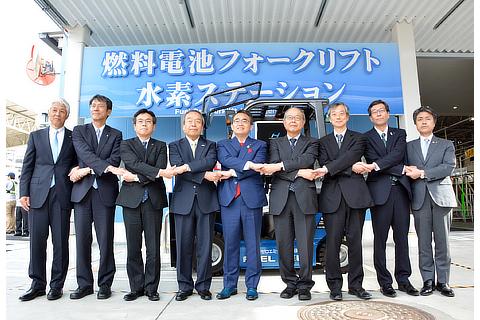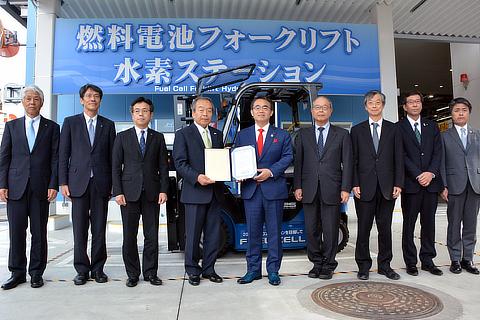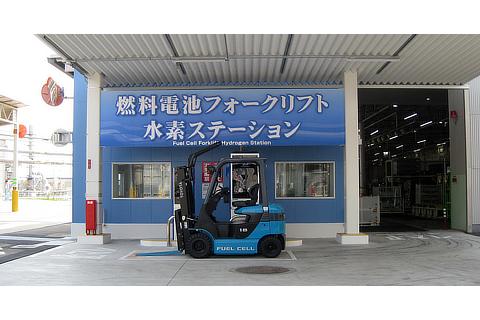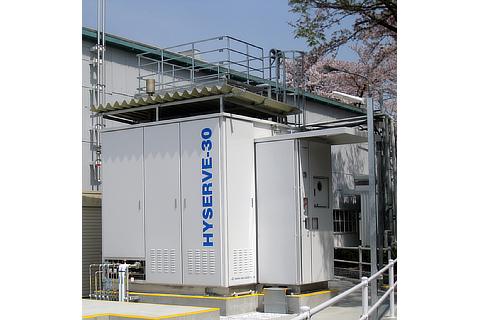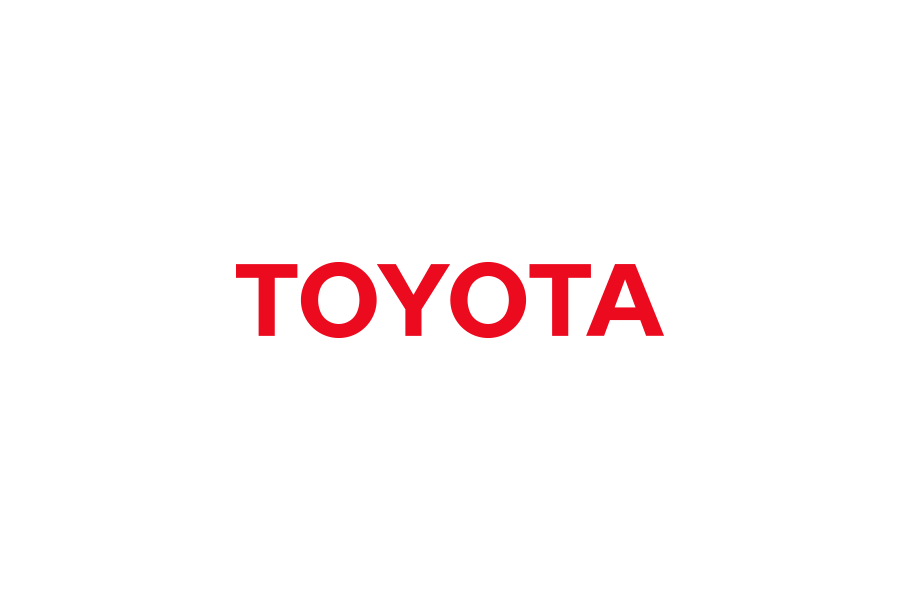Apr. 25, 2018
Press Briefing of Aichi Low-carbon Hydrogen Supply Chain Project
Remarks by Takeshi Uchiyamada, Chairman of Toyota Motor Corporation
Hello. My name is Takeshi Uchiyamada, and I am chairman of the Board of Directors at Toyota. Thank you for coming here today to Toyota's Motomachi Plant.
I am here to address you as a representative of the companies participating in the Aichi Prefecture Low-carbon Hydrogen Supply Chain Promotion Association.
In recent years, great things have been expected of hydrogen, both as a source of energy for sustainable societies and as a form of energy.
We have held a great many discussions centering on the following two questions:
Is there a need for a hydrogen-based society? And, will the realization of hydrogen-based societies make the world a better place?
Our conclusion is that a hydrogen-based society is essential. We have identified four key reasons, and I would like to share these with you now:
First, hydrogen generates no CO2 when it is used.
Second, hydrogen can be produced using renewable energy sources, and it is an energy form well suited to being locally produced for local consumption.
Third, hydrogen can be created from a variety of primary energy sources, and is therefore extremely advantageous from the standpoint of energy security. At present, hydrogen is produced from natural gas and other fossil fuels; its primary source is as a by-product from steelmaking and caustic soda production. It can be produced from sewage sludge, lignite, and other resources that at present have no utility value. In addition, hydrogen can also be produced by electrolyzing water, the energy for which can be provided by sunlight and other renewable energy sources. With this last method, no CO2 is created during the production process.
Fourth, creating a society in which electrical grids and hydrogen grids are combined will enable the establishment of an even lower-carbon society. Currently, the use of renewable energy is being introduced across the country; however, the power output generated by these renewable energy sources is constantly changing. If this power is converted into hydrogen, it can be stored; this allows all the energy generated by renewable energy to be utilized without exception.
Evidently, hydrogen provides a range of benefits. Yet the realization of a hydrogen-based society will require great time and investment. It is important that there are a variety of incentives; however, it is also crucial that partnerships between industry, academia, and the public sector encourage national and local governments to draw up frameworks and long-term visions aimed at converting energy across a wide range of fields and industries, and not just the automobile industry.
Today, the Aichi Prefecture leadership has drawn up an Aichi Prefecture Low-carbon Hydrogen Supply Chain 2030 Vision and Roadmap. It is an extremely advanced initiative aimed at realizing a hydrogen-based society, and it is incredibly meaningful.
With regard to the formulation of the Vision and Roadmap, I have received detailed instruction from Ken Okazaki, specially appointed professor at the Tokyo Institute of Technology, and Yasuo Suzuoki, professor at the Aichi Institute of Technology. I would like to take this opportunity to express my gratitude to both men: thank you.
The Aichi Prefecture Low-carbon Hydrogen Supply Chain Promotion Association plays a vital role in establishing new partners in Aichi Prefecture―which is renowned for its manufacturing industry―and in expanding its sphere of activities, both by increasing understanding of hydrogen and by identifying business opportunities related to its production and use.
The promotion association's first project is the Chita City and Toyota City Renewable Energy Low-carbon Hydrogen Project. A diverse group of parties―Chita City, Toyota City, Chubu Electric Power, Toho Gas, Toyota Industries, and Toyota―will become partners through cooperation and mutual understanding. The project has now been certified, and we will begin the local production of hydrogen energy for local consumption today.
By utilizing existing infrastructure, this project has realized significant reductions in costs and increases in profitability. However, we cannot realize a true hydrogen-based society until the cost competitiveness of hydrogen energy is equal to or exceeds that of existing energy forms such as electricity and gas.
For this reason, I hope that companies not just from Aichi Prefecture but from across the country participate in this project. I also look forward to the participation of companies from the financial, agricultural, food, and biotechnology industries―industries that previously had no connection to hydrogen.
Reducing carbon emissions is not just a method of dealing with environmental issues; it is also an opportunity to establish new businesses. It behooves all stakeholders across all industries to work together, share their knowledge, and advance discussions aimed at realizing a hydrogen-based society.
It is clear that the realization of a hydrogen-based society will take a long time. There is a Japanese proverb that goes: "A journey of a thousand miles begins with a single step." Today's launch of the Aichi Prefecture Low-carbon Hydrogen Supply Chain is, indeed, the first step on our journey. I look forward to working together as a partner with all of you here today.
Finally, I would like to touch on Toyota's goals for the future.
As announced in Toyota Environmental Challenge 2050, Toyota is working hard to develop and launch cars with zero CO2 emissions. At the same time, we are also aiming to reduce plant CO2 emissions to zero.
To this end, we are seeking to reduce CO2 emissions to zero during the production of FCVs, which are cars that emit zero CO2 while running. At our Motomachi Plant, we intend to reduce emissions of CO2 in the FCV production process to zero by 2020.
The local governments and companies that have gathered here today will become leaders in the push for the realization of a hydrogen-based society.
Thank you.
